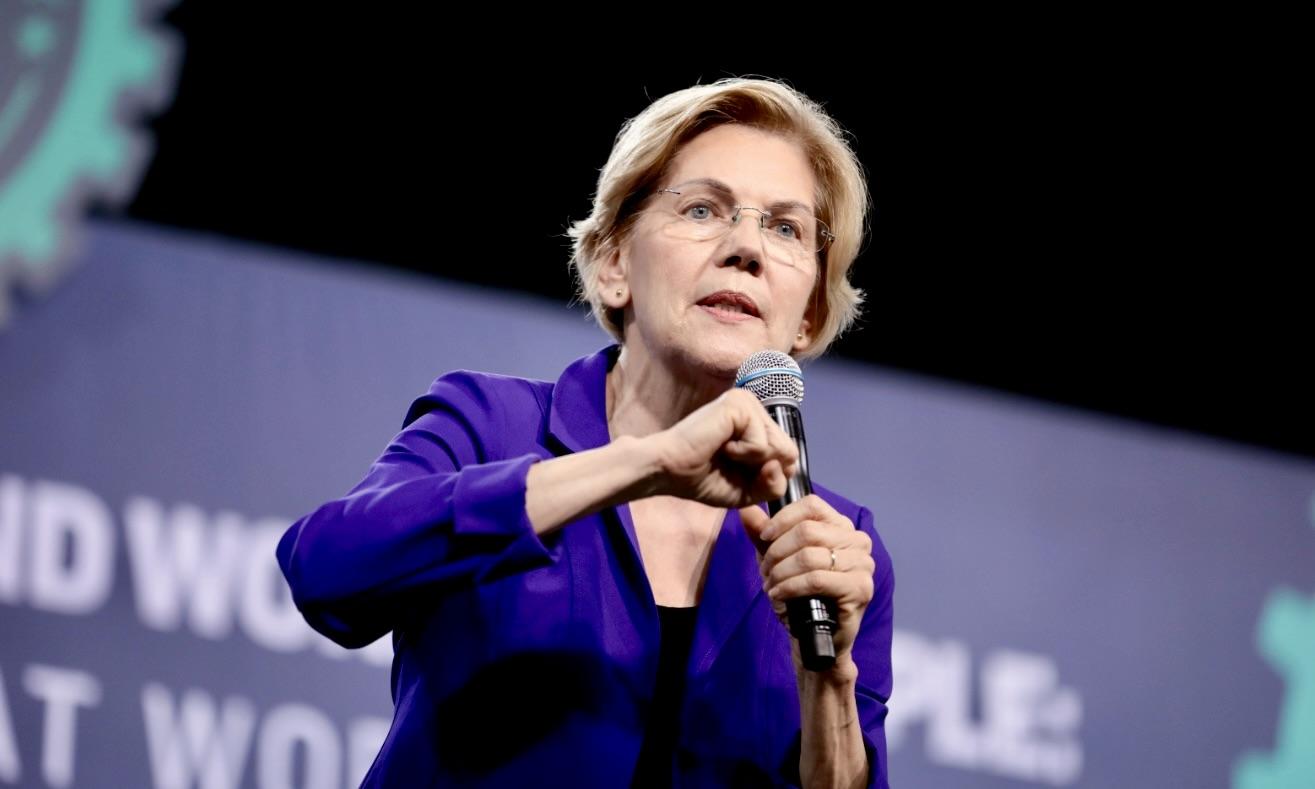In a recent development, U.S. Senator Elizabeth Warren has aimed at prominent cryptocurrency lobbying groups, questioning their influence on regulatory matters.
In a letter addressed to CoinCenter, Blockchain Association, and Coinbase, Warren expresses her concerns about the industry's lobbying efforts and the potential employment of former defense, national security, and law enforcement officials to thwart regulation.
Warren's Letter Highlights Concerns Over Crypto Lobby Efforts
Warren argues that these entities aim to prevent regulators from effectively controlling cryptocurrencies' role in financing terrorist organizations.
Despite reports from analytics firms like Elliptic, which state that there is "no evidence" of significant crypto donations to groups like Hamas, Warren claims that cryptocurrencies are becoming an essential component of their operational activities.
According to Crypto Times, Warren's letter also cites a recent communication from the Blockchain Association to Capitol Hill, signed by former national security specialists, intelligence officers, and military personnel.
The letter downplays illegal behavior in the cryptocurrency industry and opposes laws that would require digital asset companies to relocate.
Industry Responds to Warren's Criticisms
The cryptocurrency industry has responded to Warren's letter, with CoinCenter labeling it a "bullying publicity stunt."
CoinCenter emphasizes the importance of engaging like-minded experts to advocate against legislative proposals they believe are unconstitutional, asserting that it is within their fundamental right to associate and petition the government freely.
The Defiant reports that the Blockchain Association plans to continue constructive engagement in Washington, educating policymakers and participating in the legislative process. The association aims to demonstrate how the crypto community can contribute to reforming legacy systems that Senator Warren has long criticized.
Warren's letter also raises the issue of the "revolving door" phenomenon, where former government officials transition quickly into private-sector roles. She argues that this practice poses ethical concerns and highlights gaps in existing ethics laws.
Senator Elizabeth Warren's recent letter to prominent cryptocurrency lobbying groups has ignited a debate over the industry's influence on regulatory matters.
While industry representatives push back, emphasizing their right to advocate against perceived unconstitutional proposals, the debate surrounding crypto regulations and the role of lobbying groups continues to evolve.



 NATO to Discuss Strengthening Greenland Security Amid Arctic Tensions
NATO to Discuss Strengthening Greenland Security Amid Arctic Tensions  U.S. Announces Additional $6 Million in Humanitarian Aid to Cuba Amid Oil Sanctions and Fuel Shortages
U.S. Announces Additional $6 Million in Humanitarian Aid to Cuba Amid Oil Sanctions and Fuel Shortages  UAE Plans Temporary Housing Complex for Displaced Palestinians in Southern Gaza
UAE Plans Temporary Housing Complex for Displaced Palestinians in Southern Gaza  China Warns US Arms Sales to Taiwan Could Disrupt Trump’s Planned Visit
China Warns US Arms Sales to Taiwan Could Disrupt Trump’s Planned Visit  Trump Signs “America First Arms Transfer Strategy” to Prioritize U.S. Weapons Sales
Trump Signs “America First Arms Transfer Strategy” to Prioritize U.S. Weapons Sales  Trump Lifts 25% Tariff on Indian Goods in Strategic U.S.–India Trade and Energy Deal
Trump Lifts 25% Tariff on Indian Goods in Strategic U.S.–India Trade and Energy Deal  Trump Signs Executive Order Threatening 25% Tariffs on Countries Trading With Iran
Trump Signs Executive Order Threatening 25% Tariffs on Countries Trading With Iran 































